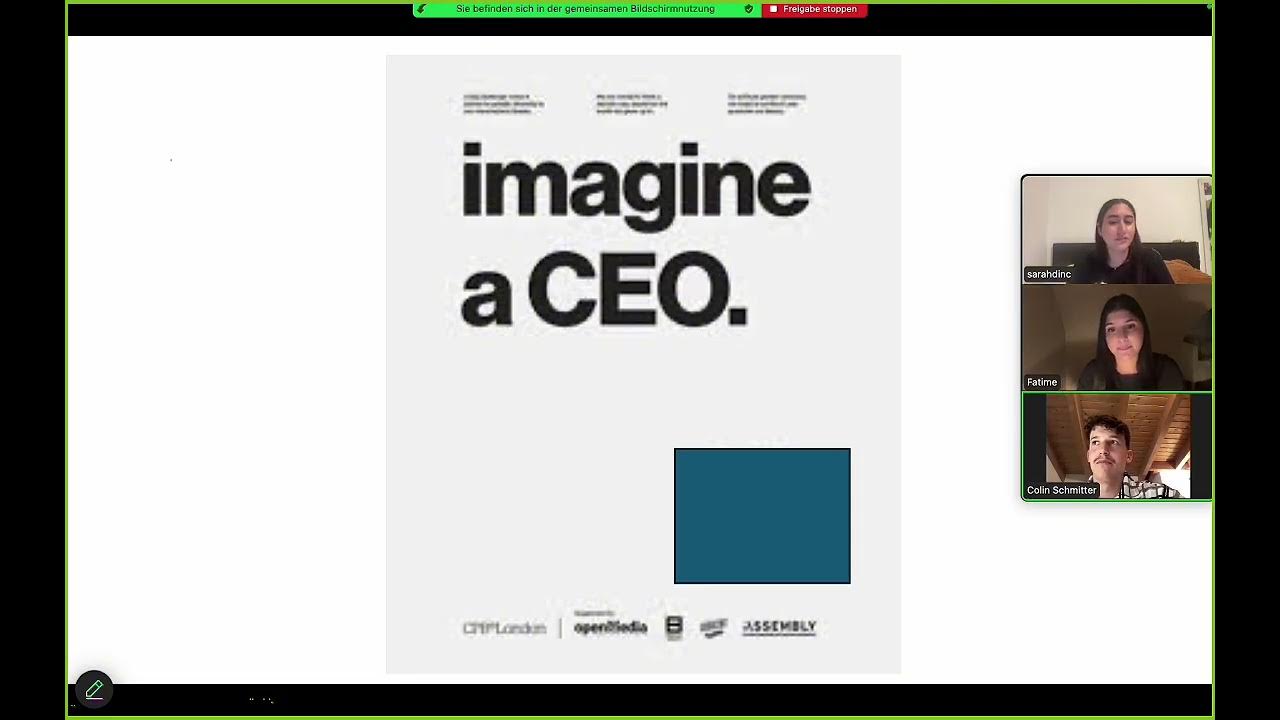Miss Representation Extended Trailer
Summary
TLDRThis transcript addresses the profound influence of media on society, particularly on children and gender roles. It critiques the portrayal of women as primarily valued for their appearance, perpetuated through advertising and media content. The speaker discusses the subconscious impact of media on insecurities, the need for more female representation in leadership, and the importance of media literacy education. The script also highlights the potential of media to drive change and the responsibility of those who control it to reflect diverse voices and challenge stereotypes.
Takeaways
- 🌐 **Media's Impact**: Media is a powerful force shaping society, politics, and national discourse.
- 📱 **Digital Dependency**: Young people are increasingly reliant on digital platforms for information, impacting their development.
- 👧 **Gender Stereotyping**: Media often perpetuates harmful gender stereotypes, focusing on women's appearances over intellect.
- 💔 **Objectification**: Women are frequently objectified in media, reducing their value to physical attributes.
- 🚫 **Media Limitations**: Media's portrayal of women is restrictive and derogatory, even towards powerful figures.
- 💼 **Political Economy**: Media's revenue model, driven by advertising, influences content creation and perpetuates harmful narratives.
- 📊 **Anxiety and Insecurity**: Advertising often exploits insecurities, fostering a subconscious anxiety in consumers.
- 📉 **Detrimental Effects**: The media's portrayal of women contributes to a culture of violence and inequality.
- 👶 **Social Conditioning**: From a young age, children are conditioned by media to adopt gendered expectations and behaviors.
- 🔄 **Breaking Stereotypes**: There's a pushback against traditional gender roles, with individuals rejecting hyper-masculine and misogynistic stereotypes.
- 🌟 **Representation Matters**: Seeing women in leadership roles on screen can inspire and empower young girls.
- 🤝 **Supportive Networks**: Women in positions of power are creating supportive networks to uplift and mentor other women.
- 🌈 **Diversity in Leadership**: There's a growing recognition of the need for diverse leadership that reflects the broader population.
Q & A
What is the significance of media in shaping society according to the transcript?
-Media is considered the message and the messenger, and it is increasingly powerful. It shapes society, politics, national discourse, and children's brains and emotions. Understanding media is essential to understanding what's happening in our society.
How does the media's influence differ from other sources of information?
-People learn more from media than any other single source of information, highlighting its unparalleled reach and impact on society.
What role does media play in the lives of children?
-Media shapes children's brains and lives by delivering content through platforms like Facebook and cell phones, impacting them 24-7.
How does media affect the self-perception of girls and boys?
-Girls are often taught that their value depends on their appearance, while boys are taught that their worth is determined by their power and control over women.
What is the impact of media on women's self-esteem and body image?
-Media often portrays women in a derogatory and limiting manner, which can lead to insecurities and negative body image issues, as exemplified by the focus on physical appearance over intellectual achievements.
How does the media's portrayal of women affect the public's perception of them?
-The media's portrayal can be so limiting and derogatory that it questions its ability to take any woman in America seriously, as seen with the treatment of powerful women like Hillary Clinton.
What is the political economy of the media as discussed in the transcript?
-Most media revenues come from advertising, which is tied to capitalism. The exploitation of women's bodies sells products, and media companies are giving the public what advertisers want, often packaged to seem like it's the public's demand.
How does advertising influence the public's perception and behavior?
-Advertising often makes people feel anxious and insecure, which can be subconsciously harmful and lead to a culture of violence against women.
What is the role of media literacy education in understanding media's impact?
-Media literacy education helps people understand the political economy of media and how media companies and advertisers shape the content we consume.
How does the media's portrayal of gender roles affect children's aspirations?
-Children's aspirations are influenced by media, leading to a gap in the number of boys and girls who want to be President as they grow older due to the reinforcement of traditional gender roles.
What is the importance of representation in media for women and girls?
-Representation in media is crucial as it allows women and girls to see themselves in positions of power and leadership, which can inspire and motivate them to pursue their own goals.
How can media be an instrument of change?
-Media can be an instrument of change by either maintaining the status quo, reflecting societal views, or awakening people and changing minds, depending on who is controlling the narrative.
Outlines

このセクションは有料ユーザー限定です。 アクセスするには、アップグレードをお願いします。
今すぐアップグレードMindmap

このセクションは有料ユーザー限定です。 アクセスするには、アップグレードをお願いします。
今すぐアップグレードKeywords

このセクションは有料ユーザー限定です。 アクセスするには、アップグレードをお願いします。
今すぐアップグレードHighlights

このセクションは有料ユーザー限定です。 アクセスするには、アップグレードをお願いします。
今すぐアップグレードTranscripts

このセクションは有料ユーザー限定です。 アクセスするには、アップグレードをお願いします。
今すぐアップグレード5.0 / 5 (0 votes)






